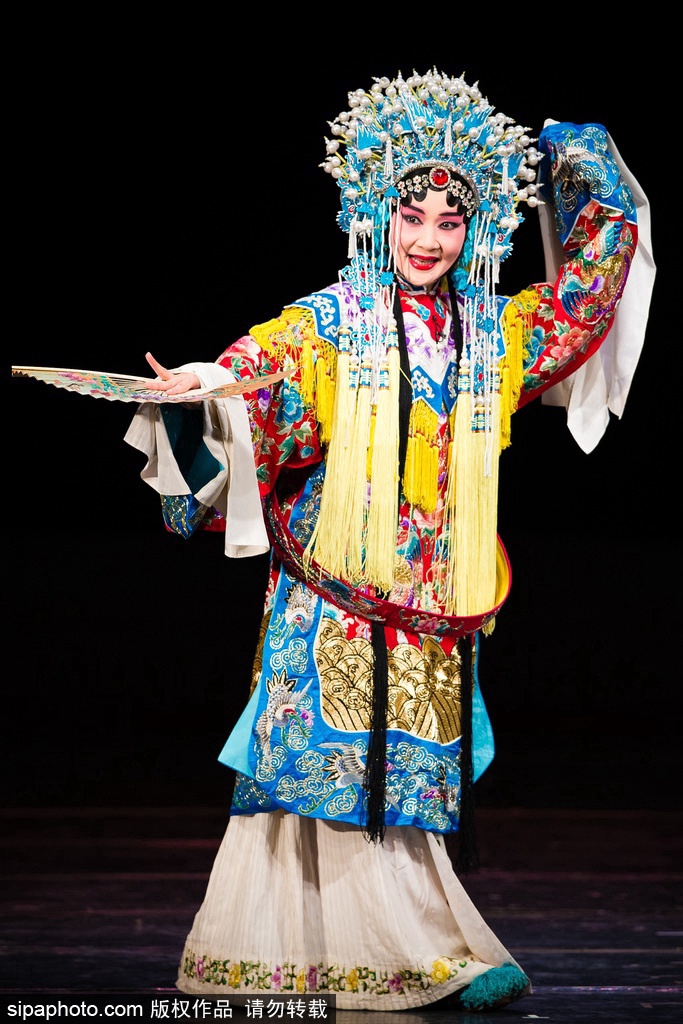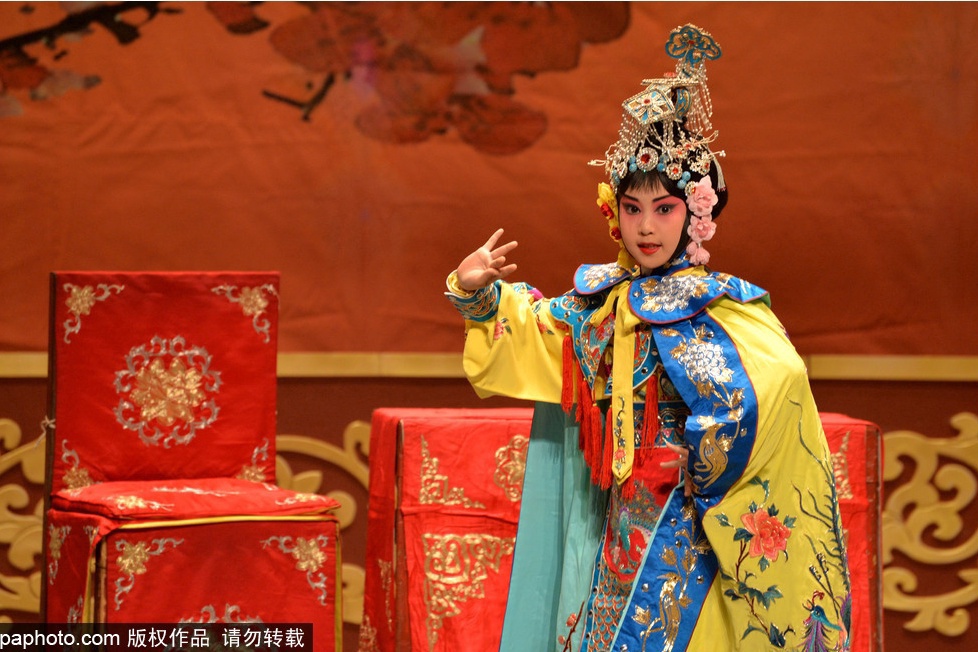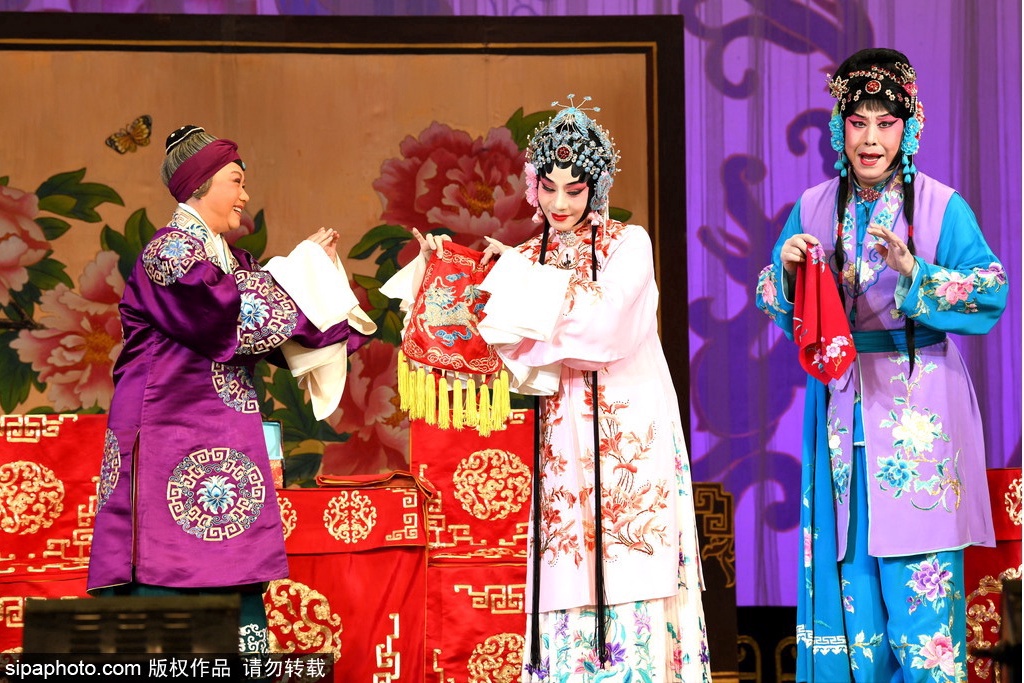Peking Opera is a veritable national treasure of China. Since its arrival in Beijing, Peking Opera has been changing and evolving for over 200 years. During this period, many masterpieces of Peking Opera have been created. The most distinctive feature of Peking Opera is the use of the facial makeup to express the character's personality and destiny. As the most distinctive and representative cultural asset of Beijing's traditional culture, these works have become a powerful name card for spreading Chinese culture.
Beijing opera mainly involves the performance of historical stories. Currently, the main focus is on traditional literature depicting historical stories, such as The Romance of the Three Kingdoms, Journey to the West, The Legend of Water Margin, The Sui and Tang Dynasties, and The Legend of Yue Fei, as well as other innovative historical and modern operas. Here are some of the most popular performances.
Sun Wukong

Journey to the West is a popular Peking Opera play about the invincible Sun Wukong. For new audiences, Sun Wukong remains popular and easy to understand. One of the most popular Peking Opera productions, Sun Wukong's Greatest Hits tells the story of Sun Wukong, who gains invincible powers and rampages through the Heaven Court.
Journey to the West is based on a novel of the Ming Dynasty. Sun Wukong called himself the Monkey King and had a group of small monkeys at his command on Mount Huaguo. When the Dragon King complained to the Jade Emperor that Sun Wukong had stolen his Ruyi stick, Sun Wukong was given a position as a stable guard (a low-level official). After Sun Wukong was cheated, he returned to Mount Huaguo in anger. The Jade Emperor wanted to defeat Sun Wukong, but Great White Planet once again suggested to let him guard the The Peach Garden. When Sun Wukong learned from the fairies who came to pick the peaches that he was the only one not invited to the banquet, he was furious and stormed into the banquet hall. There are two major roles of Beijing opera: the singing-based literary roles and the action-based martial roles. The opera Sun Wukong is mainly action-oriented.
Hongmen Banquet
The Hongmen Banquet tells the story of the meeting between Xiang Yu and Liu Bang. After the death of Qin Shi Huang, the country was in turmoil. Liu Bang overtook the capital of Qin before Xiang Yu, and Xiang Yu was jealous and sent his troops to Hongmen. Liu Bang rushed to Hongmen to explain, but his chief advisor Fan Zeng tried to assassinate him at the banquet. However, thanks to the resourcefulness and success of his vassals, Liu Bang escaped from danger.
The Drunken Beauty

The Drunken Beauty is one of the masterpieces of the famous Chinese Peking Opera actor Mei Lanfang. Mei Lanfang was one of the Four Great Masters respected by the Japanese Kabuki actor Tamasaburo Sakado, and a mysterious figure who toured successfully abroad (in the United States, the Soviet Union and Japan) in the first half of the 20th century.
The Drunken Beauty has been performed since 1914. Yang Guifei promised to drink with the emperor while enjoying the flowers. She waited for Emperor Ming of the Tang Dynasty, but the emperor did not arrive at the appointed time. In fact, the emperor was already living with another woman. When Yang Guifei learned of this, she drank alone to relieve her sorrow. The opera depicts the jealousy, suspicion and sorrow of women in the palace.
Farewell to My Concubine

Farewell My Concubine tells the story of the final farewell between Xiang Yu and Yu Ji. Along with The Drunken Beauty, Farewell My Concubine is one of Mei Lanfang's masterpieces. It is known for a film directed by Chen Kaige and starring Leslie Cheung. The film tells the tragic story of Xiang Yu, the King of Xichu, who was besieged by Liu Bang of the Han Dynasty in the late Qin Dynasty. Xiang Yu and Yu Ji drank together and Yu Ji danced a farewell sword dance and then committed suicide by cutting her neck.
The scene in the military camp where Yu Ji danced and Xiang Yu sang mournfully is the most vivid in the opera. While living and dying, both of them are tender-hearted and think about each other's safety, along with their resolute and unyielding character, this scene is the most wonderful part of the opera. Yu Ji's sword dance combines the softness of classical dance drama with a lively martial arts style.
The Unicorn Purse

The opera is one of the most famous works by Chinese Peking Opera actor Cheng Yanqiu. The opera was recently adapted into the popular Chinese TV series "Dear Parents" with Chinese actress Yan Ni as the lead actress. The TV series has become a hit with young audiences.
Before the marriage of Xue Xiangling, daughter of the rich Xue family of Dengzhou County, her mother gave her an unicorn purse with a large amount of jewels in it according to custom. On the wedding day, Miss Xue and a poor woman, Zhao Shouzhen, collided in marriage. Zhao Shouzhen was crying because of the injustice in the world. Xue Xiangling knew the reason and gave the purse to Zhao Shouzhen directly. Afterwards, Xue Xiangling was struck by a flood and became a nanny in a rich family. Later, she found out that the hostress of the Lu family was the poor woman Zhao Shouzhen. Zhao Shouzhen treated Xue as an honored guest and they became sisters.



